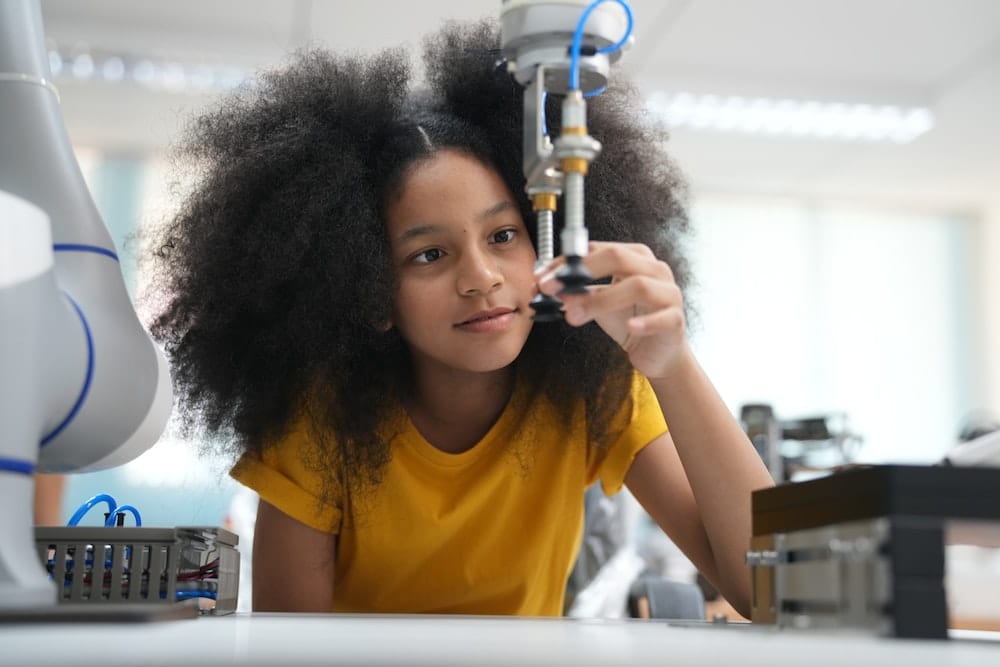How Can AI Drive Innovations in Personalized Health and Fitness Services?

Technology has drastically transformed the fitness and healthcare sectors, introducing innovative and efficient methods to improve our everyday lives. Now more than ever, the relevance of data in these fields is immense, creating a new avenue to explore, that is Artificial Intelligence (AI). AI is revolutionizing the way we view health and fitness, by providing personalized fitness programs and healthcare services based on individual data. By analyzing these data, AI can create tailored workout routines and health services that cater to the specific needs and goals of each user.
AI in Personalized Fitness Training
In the world of fitness, one-size-fits-all is becoming a thing of the past. The focus is shifting towards personalized workout regimens. AI is leading the way, offering bespoke solutions that make your fitness journey unique and more effective.
Also to discover : How to Use AI for Enhancing Customer Engagement in Retail?
AI-Powered Fitness Apps
AI has led to the development of smart fitness apps that offer customized workout plans to users. These apps use machine learning algorithms to analyze data from your workout history, health information, and user preferences. The result is a tailored fitness plan that meets your specific needs and goals.
For instance, an AI-powered fitness app may suggest a low impact, high-intensity workout for someone recovering from a knee injury, or an endurance-based routine for a marathon runner in training. The personalized workout plans these apps create can maximize results, boost motivation, and reduce the risk of injury.
Also to read : How to Effectively Manage Data Privacy in a Growing Business?
AI and Personalized Learning in Fitness
In addition to providing tailored workout plans, AI also facilitates personalized learning in fitness. With machine learning algorithms, AI can monitor your workout performance over time, identifying patterns and trends. This feedback can highlight areas where you’re making progress and areas that need improvement.
AI can also provide real-time guidance during workouts, just like a personal trainer. AI technology can evaluate your form, suggest adjustments, and provide immediate feedback, promoting proper technique and reducing the risk of injury.
AI in Personalized Healthcare Services
In healthcare, AI is setting new standards for personalized care. By analyzing vast amounts of data, AI can predict health risks, design personalized treatment plans, and improve patient outcomes.
AI and Predictive Healthcare
Predictive healthcare is an emerging field that uses AI to predict health risks based on individual data. By analyzing data from genetic information, lifestyle habits, and medical history, AI can identify patterns and predict potential health issues.
For example, AI can analyze data from wearable devices that monitor heart rate and blood pressure to predict the risk of cardiovascular disease. By identifying these risks early, individuals can take proactive steps towards prevention, such as changing dietary habits or incorporating more physical activity into their daily routine.
AI in Personalized Treatment Plans
AI is also making strides in developing personalized treatment plans. By analyzing patient data, AI can suggest treatments that will likely be most effective for a specific individual.
Take cancer treatment, for example, where AI is starting to play an instrumental role. By analyzing tumor data, AI can suggest targeted treatments that would work best for a specific type of cancer, considering the genetic makeup of the tumor and the individual. This approach can increase the chances of successful treatment and reduce the risk of side effects.
AI in Personalized Health and Fitness Services: The Future
As AI development continues to advance, so will the depth of personalization in health and fitness services. AI is not just a trend, but a transformative tool that has the potential to make health and fitness services more effective, personalized, and accessible.
However, with all the potential benefits of AI, it’s also crucial to maintain a human touch in health and fitness services. AI should enhance human interactions, not replace them. It’s the blend of technology and human touch that will truly revolutionize personalized health and fitness services.
In the end, the goal of AI in health and fitness is to empower individuals to take control of their health, by providing them with personalized tools and insights that can help them lead healthier, more active lives.
AI in Mental Health and Wellness
Mental health is another crucial aspect in the realm of personalized health and fitness, and the role of AI in this domain is steadily growing. The ability of AI to analyze patterns, predict outcomes, and offer customized solutions is revolutionizing mental health care.
AI-Powered Mental Health Apps
AI-powered mental health apps are emerging as effective tools in offering personalized mental health care. Through techniques such as machine learning and computer vision, these apps can analyze user behaviour and emotional state from text inputs, voice tones, and facial expressions. The data gathered is then used to provide real-time feedback, coping mechanisms, therapeutic exercises, and sometimes, even recommend professional help.
For example, an AI-powered mental health app might detect patterns of increased stress or anxiety based on your input and suggest mindfulness exercises or meditation practices to help manage these symptoms. Such a personalized approach can help individuals better understand their mental health and take proactive steps towards improvement.
AI and Predictive Mental Health Care
The predictive capabilities of AI are not confined to physical health alone. In mental health, AI can analyze user data over time and predict potential mental health issues. This kind of predictive healthcare can enable individuals to act before the onset of a full-blown mental health crisis.
For instance, AI can analyze patterns from your daily habits, such as sleep patterns, physical activity levels, and social interactions to predict the risk of depression or anxiety. By doing so, AI can prompt individuals to seek help and take preventive measures to avoid a potential crisis, contributing to overall mental wellness.
Conclusion: The Role of AI in Personalized Health and Fitness
With its limitless capabilities, AI is indeed driving innovations in personalized health and fitness services. From transforming app development in the fitness industry, enhancing functional training through smart fitness apps, to taking strides in precision medicine and mental health care, AI is changing the landscape of health and fitness.
However, it’s essential to remember that while AI offers immense benefits, it’s not a standalone solution. The insights and predictions made by AI’s learning algorithms still need to be evaluated and applied by professionals in the field. Likewise, wearable devices and fitness apps are tools to help individuals reach their fitness goals, but personal motivation and commitment are irreplaceable.
AI’s role in these sectors should ideally be to provide a supportive and personalized framework, aiding users to take an active role in managing their health and achieving their fitness goals. It’s the marriage of technology and human effort that brings about significant and lasting changes in personal health and fitness.
Ultimately, the goal is to leverage AI’s potential while maintaining a personal touch, creating a balanced, effective, and truly personalized health and fitness service for all.
